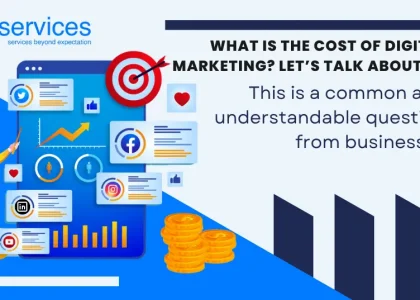We understand how difficult it is to choose which add-ons you require and which are reliable, especially when there are over 55,000 available. To assist you in making your decision, our site design team worked to create a list of characteristics you require (Security, SEO, Design, and so on) as well as the necessary WordPress plugins to acquire those features.
One of the most significant advantages of utilizing WordPress as your website platform is that it is infinitely customizable owing to user-created plugins that allow you to add the precise functionality you require. What makes WordPress so great is that anybody can write a plugin to do almost any function. The problem is that anyone can create a plugin for WordPress.
There are presently over 55,000 plugins available, and although there are thousands of great options that are reliable, effective, and trustworthy, there are thousands of options that haven’t received updates and may cause problems for your website. If you install a broken or outdated plugin to your site, you risk crashing it, slowing download speed, and leaving it vulnerable to a security attack, which may be terrible for your business.
What is a WordPress Plugin?
WordPress plugins enhance and add features to your WordPress site. These plugins can enhance your site’s performance, add a cool photo gallery, speed up your site’s performance, get sales leads, boost your site’s visibility on search engines, and a million (well, just 55,000) other things.
The Benefits of Using WordPress Plugins
The benefits of using WordPress plugins are very obvious after explaining what you can do with them above. It’s a simple method to improve your website while having someone else handle all of the hard work. I can’t describe the number of times I’ve been in a meeting with a customer discussing features they want for their website, and it seems like no matter what they want, my response is always the same: “there’s probably a plugin for that!”
Apart from bringing really amazing functionality to your site, one of the most significant reasons to utilize a plugin is because plugins are pieces of code, and installing them as plugins isolate them from the rest of the WordPress code. This is vital because anything might go wrong on your website, and if something goes wrong, the first step is to identify the plugins that are installed to check if they are the source of the problem. It’s quite simple to turn plugins on and off, and it’s even simpler to discover whether one of your plugins is causing problems on your site.
How to Choose a Safe and Reliable WordPress Plugin
When looking for a specific plugin, the first thing you’ll notice is that there are often multiple plugins made by various developers that appear to have the same features. So how do you decide which to use?
To begin, it is essential to consider that almost anybody may write and publish a plugin for others to utilize. Some are people who make money by selling a premium version while also offering a free version with limited functionality, while others are people who wanted something made for their own site and decided to share it with others. Developers that make money from their plugins are much more likely to update them on a regular basis, and it is essential that these plugins be updated on a regular basis. The main reason for this is that if WordPress updates its code, it may conflict with the code used to develop the plugin that you are using. It’s also important to remember that when trends change, so do the plugins. So pay attention to the “Last Updated” date displayed with each plugin. It’s quite simple to determine which plugins are receiving updates. If you find two plugins that perform the same thing, go with the one that is updated most frequently.
Next, check the ratings and active installations. If a plugin has just ten active installations and no reviews, it is likely to cause major troubles with your site. A plugin with a high number of active installations and a five-star rating is a secure choice. The reviews are also useful since you can look at the positives and negatives that actual users have experienced. Keep in mind that, like with any review, one negative review may not be enough to exclude the plugin from the selection. It might be a user mistake, or the problem could have previously been resolved by the developer. There’s usually no harm in installing the plugin and then uninstalling it if it doesn’t perform what you expected or is too difficult to use or set up.
Finally, check that this plugin is compatible with the version of WordPress you are using. This is displayed by a green tick and the phrase “Compatible with your WordPress version.” When core WordPress upgrades are released, plugins may stop working. You could notice the phrase “Untested with your WordPress version.” This does not necessarily indicate that the plugin will not work on your site; it could mean that you are not using the most recent WordPress version, or that the developer of this plugin did not test and verify its compatibility.
Premium vs. Free WordPress Plugins
In general, most plugins are free or have a free version. So why would you ever pay for something that you can receive for free? Most developers would want to make money by sharing their work. All users of these plugins would want to avoid paying money wherever possible. As a result, there must be a happy middle. Many plugin authors build a free version to entice you to test their plugins and save some of the more interesting features for a premium edition. Don’t worry, because the free version is usually sufficient. The good thing about premium plugins is that if someone is generating money, they are more likely to provide regular updates, including new features, and assure compatibility with WordPress’s regular changes. Nothing is more irritating than realizing that a very nice plugin on your site no longer works, causing your site to either break or look terrible until you locate another plugin.
Essential Plugins for Your WordPress Website
We understand how difficult it is to choose which add-ons you require and which are reliable, especially when there are over 55,000 available. To assist you in making your decision, our site design team worked to create a list of characteristics you require (Security, SEO, Design, and so on) as well as the necessary WordPress plugins to acquire those features. Here are the ones that every website should have in order to receive the finest results from your site right away.
Plugins for Website Layout and Content Editors
1. Yoast SEO
If you’re unfamiliar with SEO, identifying keywords, and creating meta descriptions and headers might be difficult, but Yoast makes it much easier. It’s not just a free tool for beginners, but it’s also effective enough that seasoned experts utilize it. This plugin makes it very simple for search engines to find your website.
2. Gutenberg
The Gutenberg plugin allows you to construct unique pages by utilizing built-in blocks and other features. Regardless of the theme, you’re using, the inclusion of this plugin provides you with a plethora of other options that work seamlessly with any theme, and these blocks are lightweight, so they won’t slow down your site’s speed.
3. Advance Custom Fields
This plugin allows you to add more fields to existing posts, pages, forms, and other content. This plugin allows you to add fields to the built-in theme blocks, such as thumbnails, photos, or other blocks, making them easy to change.
4. Advance Custom Fields for Font Awesome
If you use Font Awesome fonts on your site, this little gem allows you to integrate default icons in your WordPress site by adding a custom icon field.
Custom Advanced Fields: Typography Field – This plugin allows you to add fields to your theme’s settings in order to add Google fonts to the theme of your site. It also lets you totally adjust font features like Font Size, Font Weight, colors, and other variants.
5. Better Search Replace
If you’ve ever needed to update a phone number, physical address, or email address that appears on every page of your website, this plugin is for you. You may effortlessly replace any text with the touch of a button. You may also change the connections. One useful feature of this plugin is the ability to perform a “dry run” to ensure that you’re just replacing what has to be updated.
This plugin isn’t only for changing text. If you are working on a site on a development URL before publishing it, you can use this plugin to replace paths across the site to ensure that no image or text links are lost when the site is moved to a new domain or server. There are several ways for targeting certain tables. A “pro” version with database backups and other capabilities is also available. The premium edition costs $59.
Plugins for Online Lead Generation
1. Gravity Forms
Gravity Forms makes it very simple to develop well-designed forms that really operate. There are built-in “Ready Classes” that allow you to customize the layout of your form fields, as well as several possibilities for connectivity with other services like PayPal, Authorize, Stripe, and many more. Gravity Forms’ ability to funnel leads directly into HubSpot is what makes it so effective as a lead-generating platform.
Hubspot for Gravity Forms- As mentioned above this plugin will link your forms straight to your HubSpot account, giving you access to all of the tools available for managing your company leads.
2. CallRail
It’s one of the best online call-tracking tools to determine how callers came to your website. Analytics is used to discover more about your callers’ search activities as well as to analyze website traffic.
Plugins for Website Speed and Performance
1. ShortPixel Image Optimizer
The speed at which your website loads is essential, and your photos are usually the largest performance issue. This helpful plugin will automatically resize/optimize each new picture you add to your site and will compress all of your current photos with the touch of a button.
2. WP Rocket
This plugin provides several options to speed up your website, such as page caching to enhance the speed at which your pages load, as well as other features such as letting your site’s graphics load only as your visitor scrolls down your page. This method will reduce the time it takes for your web pages to load.
Plugins for Security and Spam Protection
1. Akismet
This is spam protection to assist prevent unwanted visitors from entering your site’s forms and leaving comments. You can also block the attackers in order to slow them down. To utilize this plugin, you must first input an API key after installing it. This plugin is free for personal blogs, however, it requires membership for corporate or commercial websites.
2. Gravity Forms Zero Spam
There’s nothing worse than having an inbox full of spam, making it impossible to identify real leads. I still suggest Google Recaptcha, but if you’re using Gravity Forms, do yourself a treat and install Gravity Forms Zero Spam as well. I’ve had great luck with this plugin, and you’ll definitely notice a drop in spam.
3. Wordfence
To keep the bad guys out of your website, this plugin includes endpoint firewall security and a malware scanner. Other plugins provide cloud firewall protection; however, while they help thwart assaults, the endpoint firewall is more secure. Wordfence costs around $100 each year, but it’s money well spent if you’re serious about securing your website.
4. Backup buddy
Other free backup plugins exist, but Backupbuddy securely keeps backups of your website on an off-site server. This implies that even if your server is compromised, you may still recover your website. Installing or upgrading plugins can sometimes break a website, and if this happens, you can simply restore your website instead of wasting time attempting to figure out which of your plugins caused the problem. If you move your website to a new domain, it will instantly change all of the URLs, ensuring that there are no image or link breaks. This plugin ranges in price from $80 to $200, depending on the size of your site.
Plugins for Blog Posts
1. Grow by Mediavine
This plugin includes buttons for users to share your content on social networking. Grow by Mediavine varies in that it includes customizable buttons that allow you to engage your users and encourage them to simply share your content. You may also provide share counts to add credibility. One of the most obvious distinctions with Grow is the flexibility with which the buttons may be placed; you can place them before or after the text, or even have the button follow the reader as they scroll. A premium version with more capabilities is available, but the free version contains buttons for the top five social platforms: Facebook, Twitter, Google+, Pinterest, and LinkedIn.
2. Related Posts for WordPress
This plugin will inspire your users to explore more of your website. If they’re reading a cooking story, you may display additional stories that are similar to keep them on your site. It works not only for stories but also for things. If you’re selling clothing, you may entice the reader with matching accessories.
3. Disqus
Disqus is designed to engage your audience in discussion. Comments are shown in real-time, and commentators may upload photos and symbols, much like on other social networking networks. This plugin is compatible with all platforms, from desktop to mobile, and it supports over 70 languages. There is a free version if you don’t mind your readers seeing ads. The ad-free version starts at just $9 a month.
4. Duplicate Post
Duplicate Post provides exactly what the name says. You may quickly and easily clone existing posts and use them to generate new ones. You can modify its functionality and limit its use to specific roles or post kinds. You may also build templates for your posts, which might save you a lot of time if you write a variety of content. This is a completely free plugin.
5. Redirection
404 or 301 errors on a website are a quick death for SEO rankings and extremely annoying for users. A redirect is mostly required when establishing a new website and not using all of the pages on the new site, or simply when deleting a page that may have expired, or for any number of other reasons. The Redirection plugin simplifies the management of these redirections on your WordPress site. You may either write in the redirection links manually or upload them as CSV, .htaccess, or JSON files. There are instructions for using this Redirection, but honestly, this plugin is quite simple to use.
ARF Services can help you create a high-performing, custom website.
If you're ready to make the most of your WordPress website, read on. ARF Services' site design team is eager to help. We will work with you to design special features that will make your website stand out from the competition and convert your traffic, in addition to providing you with the best plugins and features. Call us at +92 (309) 514-8449 or request a free consultation online.








